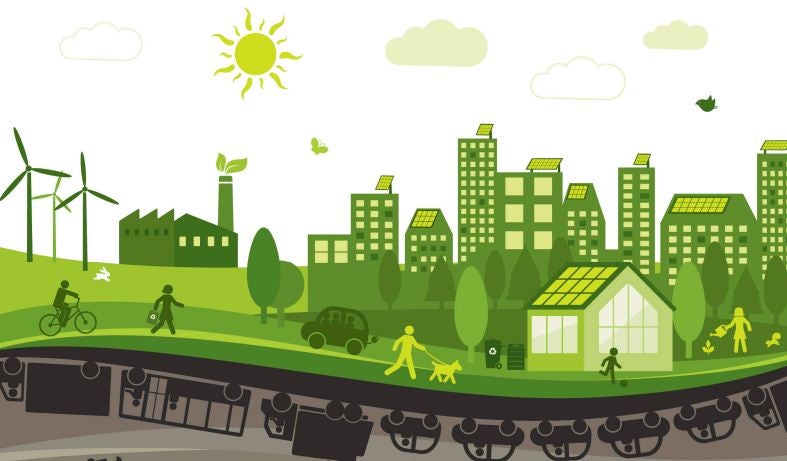
When you think about clean technology, images of wind turbines, solar panels and electric cars most likely come to mind. You probably don’t connect it with things like mobile applications, Big Data, remote sensing and cloud computing. Yet, at a very low cost, these web and mobile functions are driving ground-breaking solutions that help us make more efficient use of resources and, as a result, lower our collective carbon footprint.
In the technology world, this green growth model is called Cleanweb.
Cleanweb solutions have been spurred by pioneering business models and recent advances in information and communications technologies (ICTs). A new paper by the World Bank explains how these solutions are already disrupting high-cost Cleantech financial models and enabling smarter, more efficient use of resources in everything from our homes and cars, to factories and farms.
One of the best and most well-known examples of Cleanweb is Airbnb. The lodging website challenges the traditional hotel business model by giving homeowners the opportunity to share their accommodation with travelers at a low cost. According to their own studies, home sharing not only cuts costs but also promotes more efficient use of resources. For example, when compared to hotel stays in the European Union, Airbnb properties consume 78 percent less energy, 48 percent less water and produce 89 percent less Green House Gases (GHG) per guest night.
Europe and North America have been early adopters and developers of Cleanweb applications, but their potential benefit for emerging and developing markets is immense. Thanks to low startup costs and small risk to investors, Cleanweb can offer even bigger benefits in terms of private sector development and job creation, where capital and investor appetite may be low. New forms of capital formation such as crowdfunding are also helping catalyze existing efforts to create entrepreneurial cultures and ecosystems in developing markets, as outlined by an infoDev report last year called “Crowdfunding’s Potential for the Developing World”.
In India, actors in both the ICT and energy community have recognized that Cleanweb is a global business opportunity, and one that the country is well-positioned to take advantage of. India boasts approximately 10 percent of all global software developers. Programs for entrepreneurs that takes advantage of India’s vibrant startup ecosystem, such as PowerStart2015, are driving innovative off-grid technologies and business models that can help address India’s electricity access gap, which sees over 290 million people without access to the grid, more than 90 percent of whom live in rural areas.
Beyond this, Cleanweb companies in India are also offering energy management and energy efficiency solutions that are estimated to improve energy efficiency by 15 percent over the next decade — something that can save India $32 billion per year by 2023. One of the companies that has pioneered energy management solutions in India are EcoLibrium Energy, a Cleanweb company offering public benefits like reduction in GHG emissions from reduced electricity waste, in addition to financial and resource savings for their customers.
Environments characterized by political and economic turmoil can sometimes drive informal networks to take a bigger role to support an emerging tech scene and support development of viable Cleanweb applications and competitive Cleanweb talent. In Ukraine, the Greencubator platform unites more than 3,000 renewable energy and sustainability enthusiasts, which connects local energy talent and promotes the creation of energy innovations. One of its success stories to date has been Ecois.me, a provider of software and advanced analytics to help residential households achieve energy savings.
While the startup community in India and informal networks in the Ukraine have successfully driven Cleanweb innovations, government can play an important role in fostering Cleanweb technologies through a range of measures. For example:
- Removing legislative barriers from appropriate government data and making it accessible in machine-readable formats for free use for any purpose, including commercial use. Aside from the release of energy-specific data this can also include release of government data on weather, water consumption, maps, estate ownership, pollution, and public transport
- Providing a regulated framework for the development of peer-to-peer financing and lending markets like crowdfunding platforms where both service providers and customers can complete transactions in a safe manner
- Building awareness of the use of Cleanweb technologies to increase resource efficiency in government and public institutions
- Bolstering local IT sector and energy startup ecosystem through favorable regulatory conditions and support through other available means such as, for example, subsidies and public funding in IT and green incubators, accelerators, and academic institutions



Join the Conversation